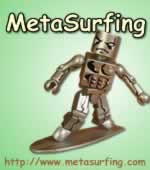Google's web services may be considered cutting edge, but they run in warehouses filled with conventional computers. Now the search giant has revealed it is investigating the use of quantum computers to run its next generation of faster applications.
Writing on Google's research blog this week, Hartmut Neven, head of its image recognition team, reveals that the Californian firm has for three years been quietly developing a quantum computer that can identify particular objects in a database of stills or video.
Google has been doing this, Neven says, with D-Wave, a Canadian firm that has developed an on-chip array of quantum bits – or qubits – encoded in magnetically coupled superconducting loops.
The team set themselves the challenge of writing an algorithm for the chip that could learn to recognise cars in photos, and reported at the Neural Information Processing Systems conference in Vancouver, Canada, this week that they have succeeded.
Using 20,000 photographs of street scenes, half of which contained cars and half of which didn't, they trained the algorithm to recognise what cars look like by hand-labelling all the cars with boxes drawn around them.
After that training, the algorithm was set loose on a second set of 20,000 photos, again with half containing cars. It sorted the images with cars from those without faster than an algorithm on a conventional computer could – faster than anything running in a Google data centre today, Neven says.
Classical computers use what is known as a von Neumann architecture, in which data is fetched from memory and processed according to rules defined in a program to generate results that are stored. It is pretty much a sequential process, though multiple versions of it can run in parallel to speed things up a little.
Quantum computers, however, promise much faster processing, by exploiting the principle of quantum superposition: that a particle such as an ion, electron or photon can be in two different states at the same time. While each basic "bit" of data in a conventional computer can be either a 1 or a 0 at any one time, a qubit can be both at once.

No comments:
Post a Comment